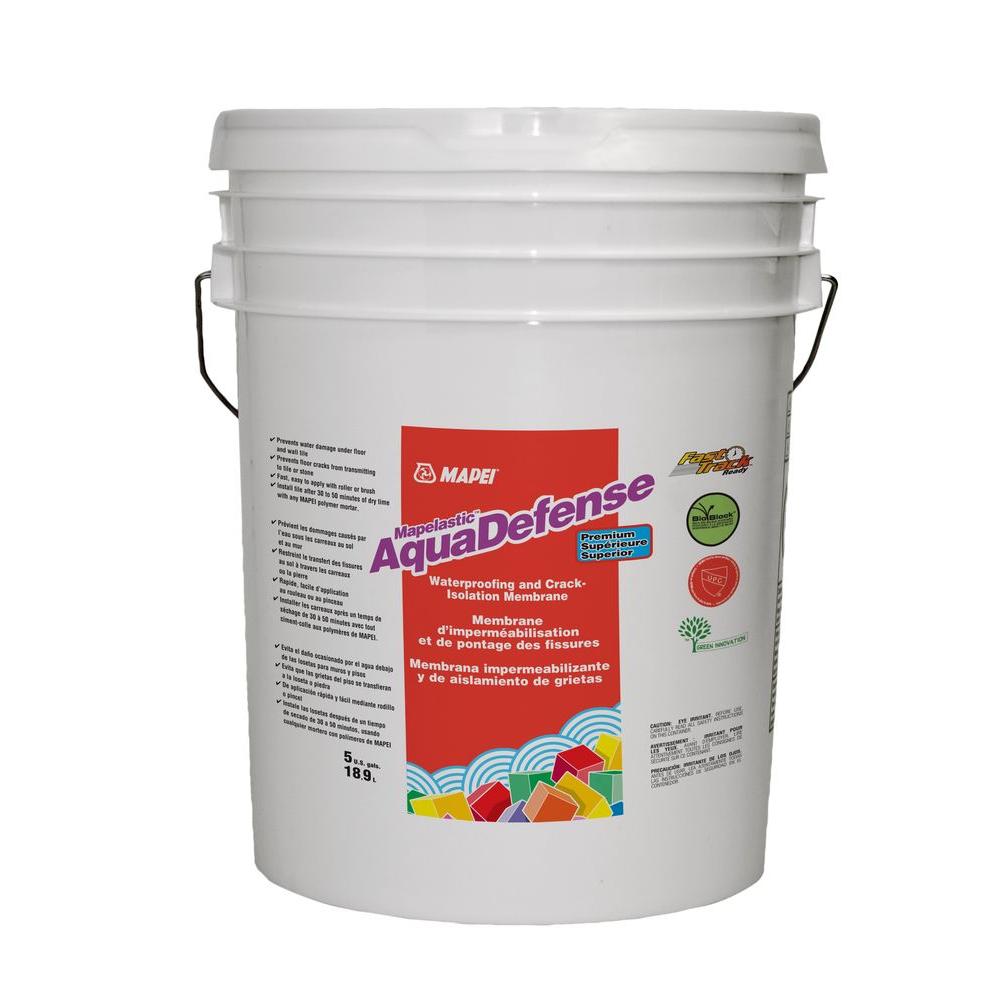Crack Isolation Membrane Home Depot
HydraFlex™ is TEC's waterproofing crack isolation membrane, created for stone and ceramic tile applications. Engage in tile floor preparation with HydraFlex today. Ready-to-use, elastomeric, waterproofing and crack prevention membrane for all interior or exterior commercial and residential tile and stone installations.
Boy, lots of responses and even a phone call from my local Laticrete rep! Here's the deal, I've used redgard plenty of times in the past for an AFM, but I have seen it fail.
Not on one of my jobs, but repairing others work. Now, it could be that they didn't put it on thick enough. I always paint on two coats, but it still makes me wonder a bit. So, I was just wondering if another manufacturer had a better option, that doesn't require fabric. Maybe I'm asking for too much.:shrug: The floor in question is SOG, with part of it dropped 1 1/2' with a mud bed.

I wa able to save the mud bed and plan to pour a thin coat of SLC over the whole floor. There is some cracking in the slab as well as the cold joints where the mud meets the slab. I'm with Jason on this. Emc Avamar Virtual Edition Pricing Policy. For crack isolation sheet membranes are the way to go.Just my opinion but I use sheet membranes on 99% of our stuff be it isolation or waterproofing.I bought too many bad liquid applied jobs.
Not to say it was bad product.It just leaves alot of room for installer error. With that said we had a demo of the new HydroBan and it is impressive.It would be one I would consider because you can pump/spray it. Download Mp3 Twinbee Rbt here. On a huge floor (like over gyp/radiant heat or just concrete) it would be very fast to have a crew spray it on. I may be wrong but it sounds like if you use Laticretes system (Primer/ Hydroban/254/permacolor grout for example) you get a systems warrenty for not just product but Labor too. To me that's pretty impressive.

I guess i didnt vote.Ive used many different types.far from all that are available however Let me first point out that I doubt anybody would/could blame an installer for vertical movement that exceeds an 1/8' ( let alone 1/4-3/8' )or for Any horizontal movement. For a Liquid I do like Hydroban. Now, i say that because i did some of my own extensive testing of the product alongside a few others including redgaurd. If a Liquid is called for I will use Hydroban. If extreme movement is expected I will cut the joint. If the architect wants to gamble, I might choose to Set with a Urethane like Ultraset depending on tile etc. If deflection causes a problem and a finished basement makes new support expensive, I will likely go to C-CURES Uniflex which I have had particularly good luck with and is readily available for me..
As a side note: I am more and more impressed with those laticrete products I have used and am looking into more of their offerings.While Lowes up here does carry their products, they do not stock specialties very deep or in larger quantities. Most installations that start with an Anti Fracture Membrane continue with the installation of a thinset mortar on top of the AFM. This is a two step process. Why not turn this 'two step process' into a faster, more productive one step process of installing stone (or tile) with an 'Anti-Fracture Thinset.?' Something like Laticrete 125 Anti-Fracture / Crack Suppression Thinset.!
The 'office stuff:' LATICRETE® 125 Sound & Crack Adhesive LATICRETE® 125 Sound & Crack Adhesive provides incredible sound transmission protection while simultaneously protecting the tile or stone finish from telegraphing of cracking up from the substrate through to the tile or stone finish. If you would like to try the product - at no cost - to evaluate it, send me a PM or email or call me. Or call your local Laticrete guy. Just realized this is an OLD post, sorry!
But from reviewing the thread, here are a few points Vertical movement in the slab is not an installer failure, this is a structural / engineering issue. Horizontal movement is typical Crack Iso Mortar warranties are limited to only the cracked tile(s) So one breaks, you get paid for one. This is pretty much industry standard for all manufacturers. I think the exception is the relationship you have with a particular company. If you are buying pallets / truckloads and are loyal to a brand, they may help out a little more.